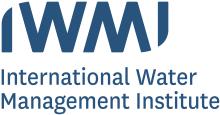Resource information
In recent decades, many countries in sub-Saharan Africa have pursued national water permit systems, derived from the colonial era and reinforced by “global best practice.” These systems have proved logistically impossible to manage and have worsened inequality in water access. A new study conducted by the International Water Management Institute (IWMI) and Pegasys Institute, with support from the UK government, traces the origins of these systems, and describes their implementation and consequences for rural smallholders in five countries – Kenya, Malawi, South Africa, Uganda and Zimbabwe. The authors of this report propose a hybrid water use rights system to decolonize Africa’s water law, lighten the administrative burden on the state and make legal access to water more equitable. This would strengthen smallholder irrigation, which is vital for boosting Africa’s food production and making it more resilient in the face of worsening drought.



